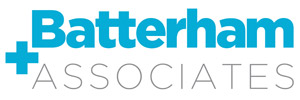Taxes are one of the most important issues facing small, growing businesses.
As a small business owner you must become tax savvy to ensure you are meeting all the responsibilities expected of you by the Australian Taxation Office (ATO). If you don’t you could end up owing the ATO more than you bargained for.
Taking the time and effort to understand how the tax system works on a basic level will help you to plan and budget effectively, and identify any opportunities to reduce your taxes. This is something every business can and should be doing.
To get you started I have put together these four key tax tips for small businesses.
1.Remember Important Deadlines
You will already be aware the ATO requires individual tax returns to be lodged by a certain deadline.Similarly, the ATO also has deadlines for businesses to lodge activity statements, GST returns, FBT reports, PAYG withholding reports, superannuation and income tax returns.
To find out what deadlines affect your business speak to your accountant. They will be able to give you a complete overview of everything that must be submitted throughout the tax year.
2. Keep Your Books In Order
Good record keeping is fundamental to a successful business. The business records you should be keeping include invoices, receipts, cash register tapes, banking records, creditors invoices, wage records, cheque butts and cash books.
Keep an asset register to record what assets you purchase for the business.
To make life easier, make good use of the wide selection of software packages and online facilities available to you. Software such as Xero Accounting Software, which is specifically aimed towards small businesses, will help you keep your records in order.
Remember to store all your documents in a safe place for at least five years – just in case the ATO decide to audit your business.
Work papers are also desirable as they assist in the preparation of proper accounting records for the determination of income tax liability.
3. Deductions and Charitable Contributions
Some tax deductions are obvious, like office expenses, rent, employee wages and business travel. Also, keep in mind other deductions such as depreciation of assets, trips that combine business and pleasure and advertising costs.Be consistent with your deductions. Things like lunch with a client or driving to meet with a client can sometimes be forgotten.
Charitable contributions can usually be claimed as deductions on your individual tax return. However, make sure the charities are endorsed by the ATO to maximise your return.
4. Regularly Review With Your Accountant
Your accountant can help with your tax planning, so don’t leave it too late in providing them with your financial records. That way your tax returns can be lodged on time, with no unnecessary delays.Your Action Plan
To make sure you keep on top of your tax obligations diarise the key lodgement dates for your business. These can be found on the ATO’s website.
You should also diarise regular tax planning meetings with your accountant. Ideally on a quarterly basis.
Whatever you do don’t leave your tax returns and activity statements to the last minute. You don’t want to end up with a late lodgement fee.
Need Help Managing Your Tax Affairs?
Batterham & Associates can do all the hard work for you. We offer fixed price accounting for small businesses. We will manage all your tax and accounting affairs throughout the year for a small monthly fee. For more information click here.

